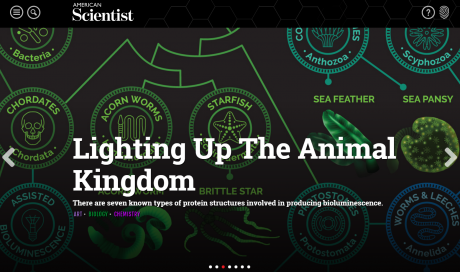- 5443 Views
- 0 Comment
- No tags
There’s a saying which states: form should always follow function. This sounds intuitively right, but in practice, when designing a new website, so many tend to focus on how it looks first, then how it actually functions.
Your website looks good — maybe even great. You’ve got the most current, flashy design, and it’s a beauty to look at. Someday it will be framed and hanging in the Louvre next to the Mona Lisa. But you’ve got a problem. It’s broken. Which is especially damaging considering the cost to build and maintain a website!
When thinking about creating your website, the first thing people are going to see, is, well, what they see. There’s no denying the fact that the wonderful world of the web is just as vain a place as your local Abercrombie and Fitch. And that’s not a terrible thing. A well designed website can be an art form; its aesthetics alone can be as inspiring and breathtaking as any other work of art.
But the old adage that looks are only skin deep applies to web design, too. As a web-configuration technician, I’ve worked with more than a few clients who have had beautiful websites with a completely broken back-end. Anyone who has ever spent time on the waves surfing the web are familiar with broken links and the dreaded “404”, but a broken back end can lead to more than just a few minor frustrations. And if you have an association website, your problems can grow exponentially. Some of the most common pitfalls I’ve encountered are:
1. Conflicting Modules. We all want the latest and greatest for our websites: flipping boxes, twirling images, a dancing Elvis. Chances are, these regions of your site are controlled by plugins, commonly referred to as “modules”. They can be great for spicing up the design of your website, but like warring siblings, they can often clash with one-another, or even worse, the entire template of your website.
2. Bad integration. Much of my work is focused on configuration for association websites, and integration with member databases is crucial. Making sure that members have access to the areas they should, and keeping others from places they shouldn’t is absolutely key.
3. Security holes. Why is a Water Conservation website pushing cheap Viagra? This may sound like the set-up to a bad joke, but for association websites, cyber attacks are no laughing matter. Most hackers aren’t acting maliciously, per se, but they do take advantage of holes in your security to push or promote spam. And especially for people who may be looking for you on Google, this can cause a big problem. Potential members may be warned to stay away from your legitimate site because of a string of hidden code.
4. SEO. This is a term that I’m sure most of you reading this have heard numerous times before. Search Engine Optimization is crucial for helping people find you; after all, what good is a great website if no one sees it? While this may be a well known term, it’s implementation is something few understand.
These are just the tip of the iceberg. If you will be publishing content on a regular basis, or if you have an association website, then chances are you will be using some type of CMS (content management system). And it’s no exaggeration to say that the market is flooded with options, many of which promise an easy to use and customize interface. I’ve heard many of clients say: “it’s just Drupal, it can’t be that hard”. And for implementing the basics, it really isn’t. Programs like Drupal and WordPress have made dynamic website management simple. But, the Devil is in the details, as they say. Having a good CMS tool for day to day publishing can make everyone’s life a lot easier, but the maintenance of the back-end can be the boogy-man of nightmares.
While we may fashion ourselves as Mario Andretti when behind the wheel of a car, we still take it into a trusted mechanic to keep our vehicle in top running shape. That’s why it’s important to work with someone who understands the intricacies of not just web design, but configuration as well, to make sure that your website is in top running order. And trust me, your members will appreciate the effort.
Comments
OUR RECENT
WORKS
-
American ScientistOnlineLearning
-
The League for…OnlineCommunity
-
California Association of…OnlineLearning
-
Building Owners and…OnlineCommunity
-
Indiana Bankers AssociationMobileFriendly
-
American Society of…OnlineCommunity
-
Tire Industry AssociationMobileFriendly
-
American Academy of…OnlineCommunity
-
National Association of…Commerce
-
American Society of…CMSIntegrationtoAMS
-
National Association of…DesktopApps
-
Long Beach Water…DesktopApps
-
Castaic Lake Water…OnlineLearning
-
Water Smart San…OnlineLearning
-
San Diego County…MemberSuite
-
Change Management InstituteMemberSuite
-
American Society of…CMSIntegrationtoAMS
-
American Association of…OnlineCommunity
-
Building Owners and…CMSIntegrationtoAMS
-
Council of Chief…CMSIntegrationtoAMS


























